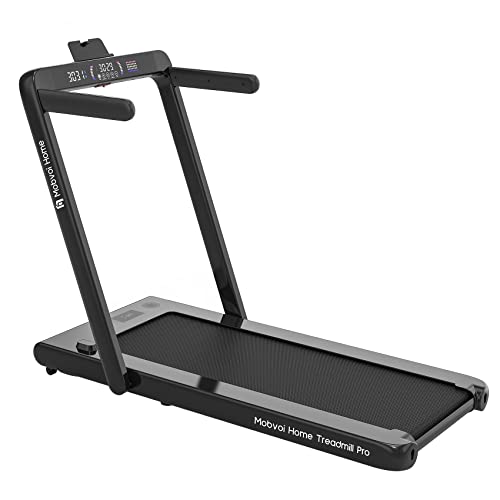The Treadmill Machine: An Educational Guide to Your Fitness Journey
The treadmill machine has become an indispensable tool in modern fitness programs. Whether one is a seasoned athlete or a newbie trying to get into shape, a treadmill uses a hassle-free and efficient way to attain fitness objectives. This short article will check out the various elements of treadmill machines, their advantages, various types readily available, and standards for reliable use.
Advantages of Using a Treadmill
Treadmills provide many physical and mental health benefits that contribute to general wellness. Some crucial advantages include:
- Cardiovascular Health: Regular use of a treadmill assists in improving heart health by enhancing the heart muscles and enhancing flow.
- Weight-loss: By engaging in consistent cardiovascular workouts, people can burn considerable calories, aiding in weight-loss and management.
- Joint-Friendly Exercise: Treadmills offer a regulated environment that allows users to adjust speeds and slopes, making it easier on the joints than working on hard surfaces.
- Convenience: Treadmills are especially helpful for those who live in areas with adverse weather conditions, as they can be utilized inside your home year-round.
- Personalized Workouts: Many modern treadmills come equipped with programs and functions that allow users to customize their workouts for varying intensity levels.
Health Benefits Overview
| Advantage | Description |
|---|---|
| Cardiovascular Improvement | Enhances the heart, enhancing overall circulation and endurance. |
| Weight Management | Efficient calorie burning resulting in weight reduction. |
| Injury Prevention | Lowered danger of injury due to adjustable surfaces and regulated environments. |
| Inspiration and Consistency | Offers an indoor alternative that motivates routine exercise regardless of weather. |
| Improved Mood | Routine exercise contributes to the release of endorphins, improving mental well-being. |
Types of Treadmill Machines
While treadmills might appear uncomplicated, various types cater to various requirements and preferences. Here are the main categories:
- Manual Treadmills: These require no power and are moved by the user's effort. They frequently take up less space and are quieter but can present a steeper knowing curve for novices.
- Electric or Motorized Treadmills: The most typical type, they include automatic programs for speed and slope. They are normally more flexible but need electrical energy to run.
- Folding Treadmills: Designed for those with minimal space, folding treadmills can be collapsed and saved away when not in usage, making them perfect for studio apartments.
- Incline Treadmills: These machines offer the ability to raise the slope, simulating hill runs for a more reliable exercise.
- Business Treadmills: Built for heavy use, these machines are usually found in fitness centers and health clubs and include a variety of functions and durability.
Contrast of Treadmill Types
| Type | Source of power | Best For | Space Considerations |
|---|---|---|---|
| Handbook | None | Newbies, budget-conscious users | Low |
| Electric | Plug-in | Varied intensity exercises | Medium to High |
| Folding | Plug-in | Limited area users | Low |
| Incline | Plug-in | Extreme cardio and strength | Medium to High |
| Business | Plug-in | Frequent gym use | High |
Tips for Effective Treadmill Use
To optimize the benefits of a treadmill routine, here are several tips to think about:
- Warm-Up: Start every exercise with a 5-10 minute warm-up at a slow speed to prepare the body.
- Posture: Maintain an upright posture, keeping shoulders back and direct to prevent pressure and injury.
- Interval Training: Incorporate different speeds throughout exercises (high-interval training) to enhance cardiovascular fitness and burn calories.
- Usage Inclines: To further improve workouts, add incline options to imitate hill running, which builds strength in the legs.
- Stay Hydrated: Keep a water bottle nearby, making sure to consume before, throughout, and after exercises to remain hydrated.
Advised Treadmill Workouts
- Novice's Walk: Start at a moderate rate for 20-30 minutes, slowly adding speed as comfort increases.
- Hill Intervals: Alternate in between incline and flat surfaces, running uphill for 1 minute followed by walking for 2 minutes.
- Long-Distance Run: Target a stable speed for an extended duration (40-60 minutes), focusing on endurance.
- Speed Training: Change speeds every minute, beginning with a light jog to brief bursts of sprinting to improve speed and cardiovascular health.
FAQs
Q1: How frequently should I utilize a treadmill for efficient outcomes?
A1: It is normally advised to utilize a treadmill at least three times per week for 30-60 minutes to see significant results.
Q2: Can I lose weight using a treadmill?
A2: Yes, with a combination of regular workout, a balanced diet plan, and portion control, using a treadmill can contribute considerably to weight reduction.
Q3: Do I require to warm-up before using the treadmill?
A3: Yes, warming up is necessary to prepare your body, lower the threat of injury, and enhance workout efficiency.
Q4: Is working on a treadmill as reliable as running outdoors?
A4: Both have benefits, however a treadmill enables regulated environments, preventing weather-related interruptions, and may have less influence on the joints.
Q5: Can a treadmill assist with muscle building?
A5: While mainly a cardiovascular tool, changing slopes can help engage and enhance specific leg muscles.
Treadmill machines are versatile and can be an integral part of a physical fitness journey. By understanding the numerous types, advantages, and effective use techniques, people can take advantage of the complete capacity of this devices. Whether going for improved garthwhiting.top , weight management, or boosted psychological well-being, a treadmill works as a trusted companion on the roadway to physical fitness.

